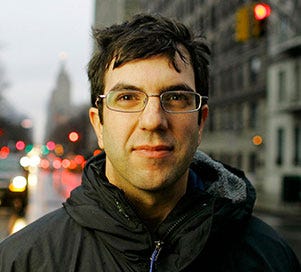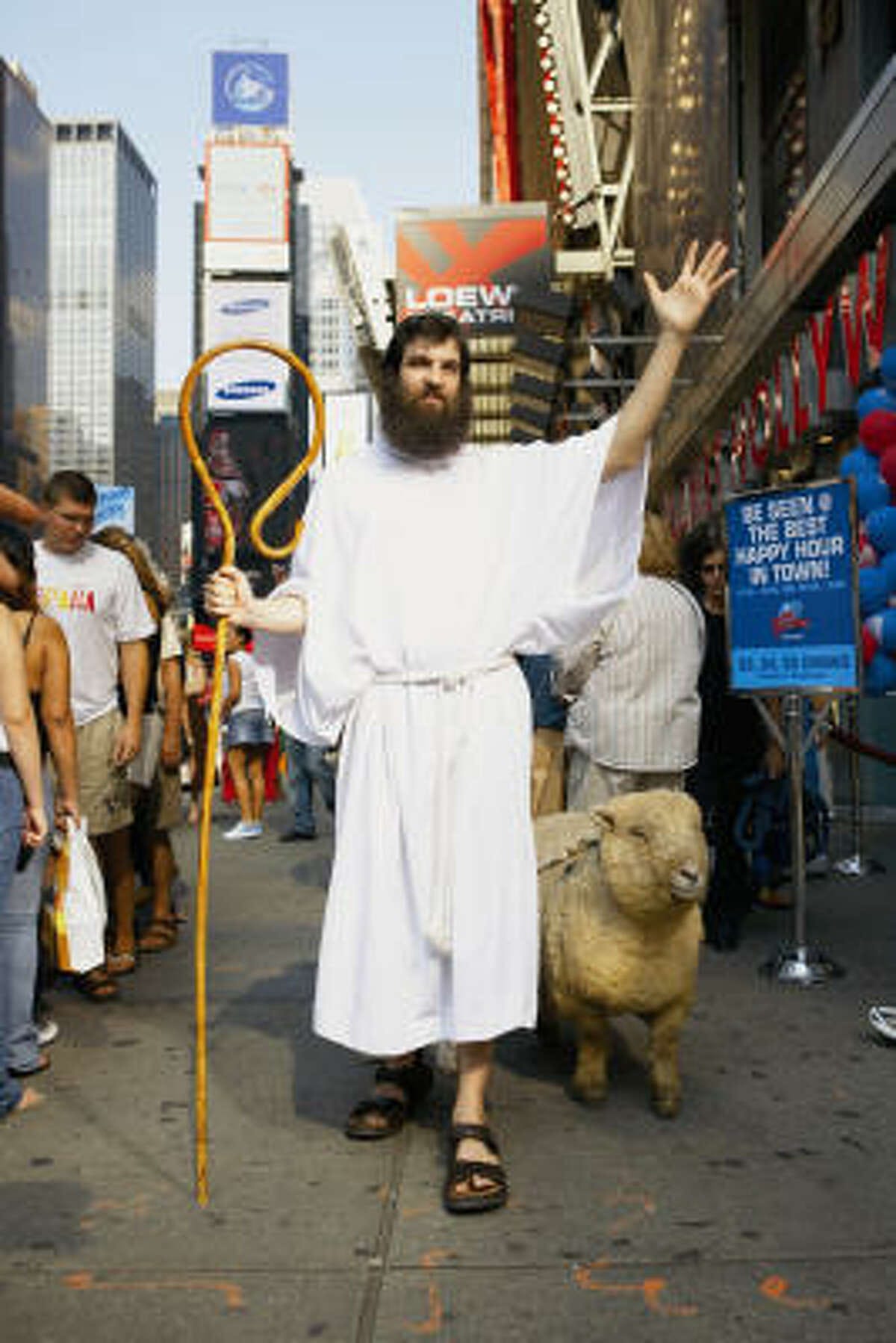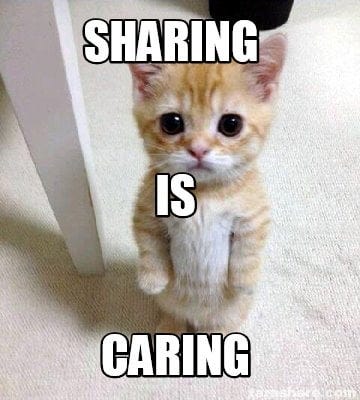A Masterclass in Creative Life Experiments with A.J. Jacobs
How the New York Times best selling author of The Year of Living Biblically and The Puzzler turned his life and career into a giant experiment… and how we can start doing creative experiments, too.
The Creativity Guild is a community of mid-life creative explorers looking to reignite our creative sparks. This is the place to reconnect with your creativity and start the projects you’ve always wanted to work on. No one lives forever, so let’s roll up our sleeves and make stuff!
Subscribe for free to get insights for world-class artists, creative inspiration, and prompts and challenges to awaken your inner artist.
When we were originally talking about what The Creativity Guild should be, we landed on doing “creativity experiments” as part of the project pretty quickly. There are a ton of daily creative practices that promise to open you up and get the juices flowing, but we didn’t know where to start.
A few weeks ago, we had a major breakthrough.
Geoff mentioned the work of A.J. Jacobs as an inspiration and immediately, we both lit up. A.J. is the world’s most famous human guinea pig. He is an incredibly talented writer and podcaster who has made a stellar career of turning his life into a series of giant experiments. He is on a never-ending public quest to learn about himself, to make the world a better place, and to endlessly entertain readers and listeners. A.J. is a SERIOUS experimenter - he is a four-time New York Times best-selling author of The Year of Living Biblically (where he spent a year living the rules of the bible as literally as possible…in downtown NYC), The Know-It-All (where he went on the quest to become the smartest person alive), Drop Dead Healthy (where he tried to become the healthiest person alive), and this year’s perfectly timed book, The Puzzler (where he set out to solve the world’s hardest puzzles.)
Both of us have done experiential journalism (fancy name for “human guinea pig”) in the past and loved it. For example, Geoff grew a moustache for a CBC Radio piece and Steve slept in an Airbnb located inside a San Francisco startup’s office for a podcast story.
So we reached out to A.J. to see if he’d be open to talking about how to do experiments for The Creativity Guild and he graciously agreed to share his wisdom.
Human Guinea Pigs and the Power of Experimenting With Your Life
We quickly realized that describing one of our favourite writers as a “human guinea pig” might make him sound like a circus sideshow attraction (“Step right up and see the Human Guinea Pig experiment on himself!”). Thankfully, A.J. was not insulted when we began our chat by calling him one…
I do think there is a little bit of a sideshow element and I don't want to dismiss that. People have all sorts of names for what I do: experiential journalist, human guinea pig, method writing (which is like method acting), immersive journalism, or stunt journalism If you're shining a light on an interesting and important topic, then I have no problem with that.
To me, the key is diving in and committing and just being willing to experiment with your life and knowing that some of it is going be pleasant and insightful and delightful, and some of it is going be horrible.
And you have to accept that because I think the insights come from taking things a little bit to the extreme. And after the experiment's over, you can get rid of the stuff that made you feel bad or was hard. You know, I shaved my huge biblical beard after The Year of Living Biblically, but there were elements of that that I kept, like the idea of gratitude, for instance.
The Four Elements of Great Experiments
Forget learning to play tennis with Serena Williams or learning to write fiction with Judy Blume… getting to talk with A.J. was like our own private Masterclass in Human Guinea Pigging™. As we think about designing experiments for The Creativity Guild, we wanted to learn as much as possible from the master of the form. So we dove right in and asked A.J. to share his criteria for designing great experiments.
1. Passion!
For your own creative process, We’re guessing that all of these things come from a spark somewhere within your heart. You enjoy doing crossword puzzles, but why dedicate your life to the extremes that you do with The Puzzler? Where does that spark come from and how do you manifest that into a larger project?
I think it has a lot to do with how it intersects with my real life. My first project was about reading the Encyclopedia Brittanica, which actually, my dad did when I was a kid. He started anyway. He didn't finish. He made it up to the middle of the letter B of Bolivia. So I thought maybe I should finish what he began. But that had a very personal connection and I think they all do. The Bible one was because I had a son and I wanted to know what to teach him.
You need the spark in your heart, or as I put it more, an intersection with your real life. There has to be a big intersection.
In general, what I look for is something that I'm passionate about. I've had a lot of people say, you know, why don't you learn the French horn? And, you know, it's just not something that drives me or that would make me excited for a year to become the best French horn player.
And so even ones that might be very commercially successful. I started one about becoming a sort of a venture capitalist, but I just never got into it because I didn't feel that it was my passion and I didn't feel that it was gonna make the world a significantly better place.
2. Improve the World
For me, the experiment has to somehow, if it goes well, improve the world. So the [experiment where I thanked everyone who contributed to my morning cup of coffee] was about how we find gratitude in this world. Or my last one was about puzzles. And I do think puzzles are a force for good. So the idea was to encourage people to be more curious and experimental because you need to have a very flexible, experimental mind doing puzzles.
3. Multiple Aspects of Life
Another big one for me: will it allow me to explore and go deep on a variety of topics? If you're doing a week-long project, you don't need this. But for me, like the Bible project, that touched on every part of life. It touched on, you know, ethics and love and career and the way I dressed and the way I talked. So I love when a project affects every part of life.
4. Structure and Endpoints
In your gratitude book, Thanks a Thousand, you take what is essentially a spiritual quest and a yearning, and you put this batshit crazy artificial construct on it. You didn't have to thank a thousand people. You decided you had to thank a thousand people. We’re curious why the structure's important, whether that's the stunt part of stunt journalism or whether that actually speaks to a part of your spirit.
Humans are better when there is a clear goal. So originally the book, Thanks A Thousand, was simply to thank as many people as I could who had anything to do with my morning cup of coffee. So thank the barista, thank the farmer, and thank everyone in between. The logo designer, the truck driver… but then when I was thinking, how can I have an endpoint? How can I make this appealing to other people? Originally the book was called Thanks For Everything, or Thanks To Everyone. But having that clear goal, whether it's a year, whether it's a thousand people, I think it makes it so much more concrete and has so many benefits.
One, it helps to have an endpoint. It helps me be motivated. It makes for a better story, and people, listeners, or readers can grasp it.
How to Find Good Experiments
Our goal is to find exercises that will help us kickstart our creativity. As a man who puts these structures around life, we’re curious if you have structures around your own creative process.
Are there things that you do every day as a practice to help kickstart your brain?
I try to carve out 15 minutes a day just for brainstorming, and I'll often have magazines that I might pull out. I'll just see an article on, I don't know, a trend in fishnet stockings and then I’ll just start brainstorming about fishnet stockings. And nothing ever comes with those, but it's a good exercise.
A long time ago, I wrote an article where I tried to be the most creative person alive for Real Simple, so I tried all of these different methods that people recommend. And of the ones that worked, one of them was making this appointment with creativity.
I also learned that really turning off the internet was huge. Even if you aren't looking at the internet, you know it's there and it's like there's a little part of your brain that's being tugged and it's like, “Well, I could go on the internet now…”
I also had a section on writer's block and so I collected all of the stories of famous writers and what they did to get over writer's block. So Ben Franklin wrote naked and Nabakov wrote standing up and someone else wrote in a bath or something. So I tried to do 'em all at the same time, standing up in a bath. That DOESN’T work.
The Formula For Puzzles, Creativity… and Life?
In The Puzzler, A.J. writes about a Japanese puzzle-maker who has perfectly summarized the magic of puzzles with three characters: a question mark, an arrow, and an exclamation point.
The question mark is the problem you’re presented with.
The arrow is the process of trying to solve it, that period of struggling with the unknown in search of a solution.
And the exclamation point is the moment when you figure it all out - a eureka moment of inspiration.
We LOVE this three-character formula and asked A.J. whether it applies to more than just puzzles.
For us, creativity has the question mark and the arrow and the exclamation mark, too. But there are infinite versions of the exclamation mark instead of a single puzzle solution. we’re wondering if you have thoughts on the creative process and why you're drawn to creativity and chose a creative career.
The process is the journey, and that's the part you have to lean into to have the insights and the magic at the end. Yeah. I love that. To me the idea of possibility is wonderful.
So it's this tension between knowing generally that you have a goal that you wanna get to, but knowing that the root could take a thousand different ways. So I love that when I start writing a book, I know at the end, I’m going to have thanked a thousand people and I hopefully will have learned some lessons. But there's gonna be a thousand twists and turns along the way.
So that thing you mentioned where that puzzles can be summarized as a question mark, arrow, exclamation point, I think it was a podcaster who said, “That's a very good metaphor, but you have to remember that the arrow is not a straight arrow. The arrow goes curly cue all over the place.”
And I actually like that. I like that better than the straight arrow.
Final Thoughts for The Creativity Guild
So, as we reflect on A.J.’s advice and think about The Creativity Guild experiments, we both agree that we are mostly on the right track…
Criteria 1: We have to be passionate about the subject matter. ✅
Criteria 2: It has to make the world a better place. ✅
Criteria 3: It has to explore many facets of life. ✅
Criteria 4: It needs structure and constraints and a defined endpoint. ❌
We need to put more thought into building experiments with structure, stakes, and endpoints. A year-long experiment doesn’t feel like the right fit for an ongoing publication…
And we are going to embrace self-exploration, the search for the meaning of life, and any other fancy-pants ideals that we all obsess about, even if we don’t admit it publicly.
So what next? EXPERIMENT DESIGN. We’re going to let A.J.’s advice percolate and figure out some A.J.-worthy experiments to dig into. If you have experiment ideas or other creativity leaders that you’d like us to talk with, let us know! geoffandsteve@thecreativityguild.com.
And we will obviously share the experiments we’re going to do in case some of you would like to participate and experiment with your life and creativity, too.
And now that we’ve talked with A.J., the stakes have been raised:
“I approve of the idea of people doing more experimenting. I can't wait to see your project!”
If A.J. could be watching, we better step up and go big!
Huge thanks to A.J. for being so generous with his time and sharing these insights with The Creativity Guild. You are awesome, A.J., and we are proud to inform you that you are now an (involuntary) Honourary Member of The Creativity Guild!
If you’d like to see clips of our chat with A.J., check out The Creativity Guild on TikTok and Instagram!










